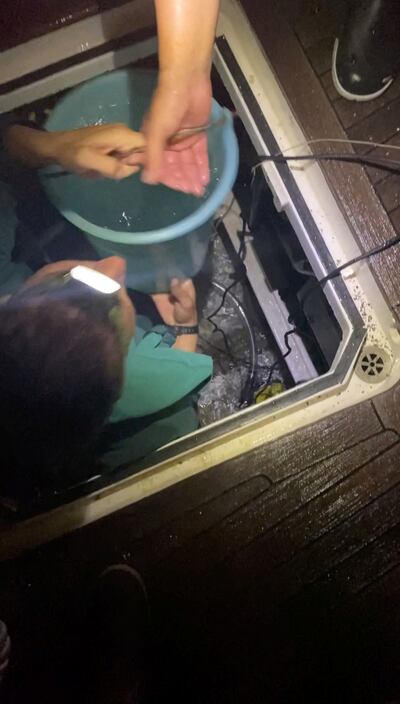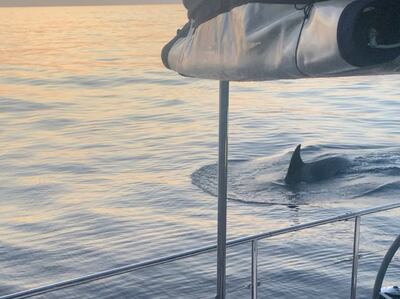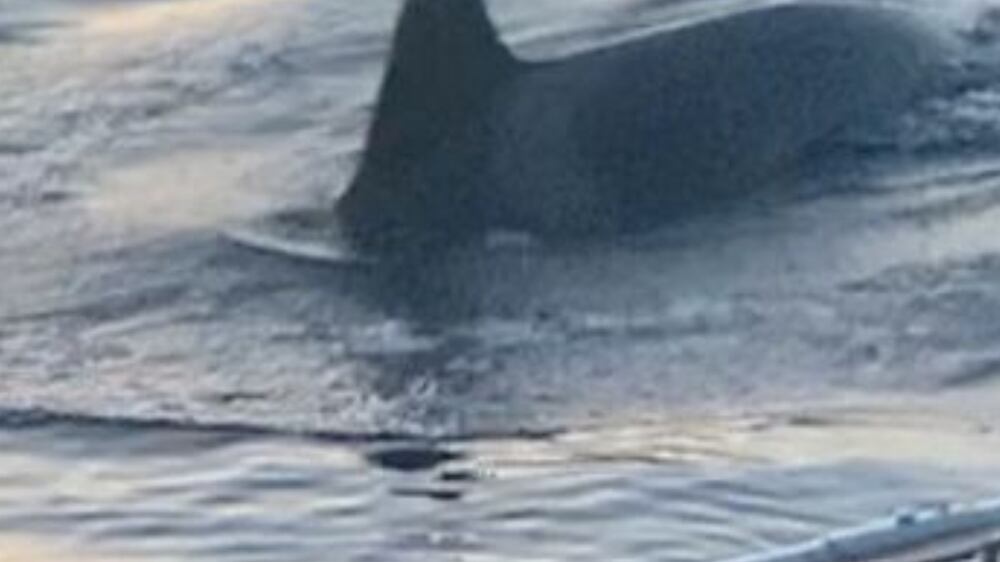A British boat sailing off the coast of southern Spain was significantly damaged in an attack by orcas, the local maritime rescue service said.
There has been an alarming increase in orca-human interactions in the area, with dozens of recorded incidents this year along the Spanish and Portuguese coasts.
During the early hours of Thursday, the sailing boat Mustique was targeted by a group of the whales, resulting in a severely damaged rudder and pierced hull.
The crew of the Mustique shared striking images on social media that vividly display the severe damage inflicted by the orcas.
The four crew members contacted Spanish authorities, who carried out a rescue operation.
“What started off as a seemingly unique encounter ended with orcas breaking our rudder off the boat, then proceeding to tear off bits of the boat for over an hour,” recounted April Boyes, one of the Mustique's crew members.
“A huge hole in the hull meant we had water ingress to other parts of the boat and the engine room. I can honestly say it was a scary experience.”
A rapid-response vessel and a helicopter, equipped with a bilge pump, were sent to assist the 20-metre vessel.
The Mustique was towed to the port of Barbate in the province of Cadiz for necessary repairs.
Ms Boyes said: “The authorities told us there have been four rudders torn off this week alone. We are all safe, I'm feeling grateful for the coastguard.”

Data from the research group GTOA, which monitors the Iberian orca subspecies, shows at least 20 interactions between orcas and small vessels in the Strait of Gibraltar this month.
In 2022, a total of 207 interactions were reported.
In a previous incident this month, the sailing yacht Alboran Champagne was damaged by orcas. It was unable to be towed owing to extensive flooding and was left adrift to sink.
Another yacht was pursued by orcas during poor weather off the Moroccan coast this month.
British tourists on board feared the worst as the killer whales bumped into the 20-metre vessel for over an hour. They were eventually able to return safely to port.

The Spanish Transport Ministry issued guidelines advising ships to vacate the area at the first sign of abnormal behaviour from the orcas, such as sudden changes in direction or speed.
Any interaction with an orca must be reported to authorities.
Mature orcas can be eight metres long and weigh up to six tonnes. Experts suspect the increase in interactions may be due to a surge in marine life in the Strait of Gibraltar.
Mimicry or misunderstanding?
The recent increase in aggressive orca encounters has been linked to an orca named Gladis, believed to have initiated this type of interaction.
Werner Schaufelberger, a vessel captain, recounted younger orcas mimicking the older orca's aggressive ramming tactics during an encounter.
The boat Mr Schaufelberger commanded sustained serious damage and sank at Barbate's port entrance after a rescue by the Spanish coastguard.
Alfredo Lopez Fernandez, a biologist and Atlantic Orca working group representative, told science news website Live Science that Gladis's aggressive behaviour was a learnt response that other orcas were now imitating, rather than an act of revenge.
Other theories range from territorial and defensive behaviour to simple playfulness to explain the orcas' actions.
Spanish authorities have reported an increase in aggressive orca encounters since May 2020, leading to restrictions on boating from certain areas.







